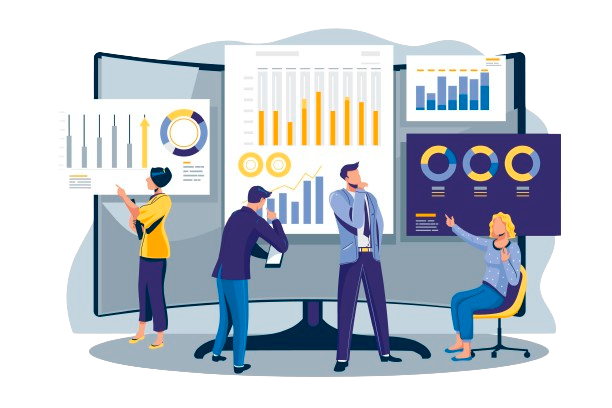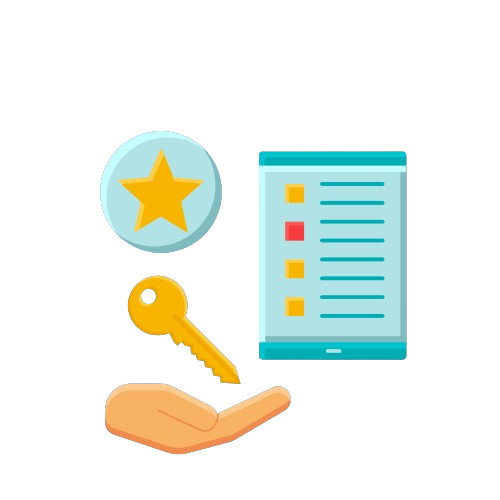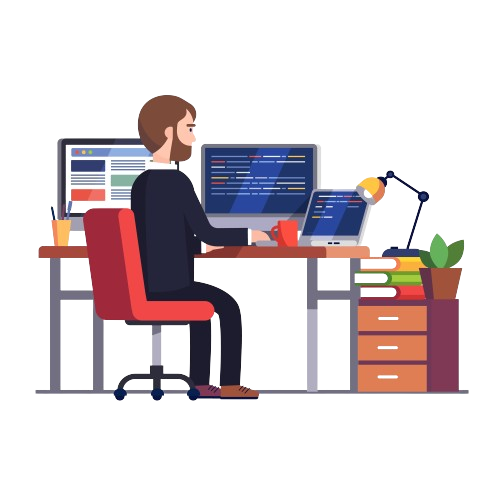 As we’re about to step into 2024, it’s time for businesses to get ready for what’s coming. Think about the challenges ahead and make a plan to tackle them for future-proofing. But it’s not just about solving problems – it’s also about finding cool and new ways to make your customers happy. Keep them excited about what you offer, so they stick around. Add something special to your products or services that makes people say “wow!” This way, your business stays strong and ready for whatever comes.
As we’re about to step into 2024, it’s time for businesses to get ready for what’s coming. Think about the challenges ahead and make a plan to tackle them for future-proofing. But it’s not just about solving problems – it’s also about finding cool and new ways to make your customers happy. Keep them excited about what you offer, so they stick around. Add something special to your products or services that makes people say “wow!” This way, your business stays strong and ready for whatever comes.
Are you sure that your business can make it through tough times? Nowadays, things change quickly – in markets and technology. Many businesses wonder if they can handle it. The big question is: Is your business ready for the future?
You might think future-proofing is just for big companies and global industries, but it’s not. Any type of business, no matter how small, can use some simple ideas to better survive a big problem. They can use the SaaS subscription management software or a simple CRM system to do so. So, let’s discuss what future-proofing is all about and how can you let 2024 be the year your business not only survives but really does well!
What is future-proofing in business?

In a general sense, future-proofing refers to the strategic process of making something resistant or resilient to future changes or uncertainties. It involves taking proactive measures to anticipate and adapt to potential challenges, trends, or developments that may arise over time. Future-proofing is applied in various contexts, including businesses, technology, infrastructure, and personal planning.
Future-proofing in business refers to the strategic planning and implementation of measures to ensure that a company remains adaptable and resilient in the face of evolving trends, technologies, and market conditions. The goal is to position the business in a way that it can withstand future challenges and capitalize on opportunities, reducing the risk of becoming obsolete or failing to meet changing demands.
What is future-proofing technology?
Future-proofing technology encompasses solutions designed to implement forward-thinking business strategies within your organization. While these strategies may differ across industries and markets, several common characteristics define future-proofing technology:
- Automation: Streamlining operations by automating manual and routine tasks, allowing your team to focus on more strategic and value-added work. This not only enhances efficiency but also lays the groundwork for adaptability.
- Integration: Seamless synchronization with other technologies in your existing tech stack, promoting a cohesive and interconnected ecosystem. This interconnectedness ensures that your technology collaborates harmoniously, avoiding data silos and enhancing overall efficiency.
- Scalability: Facilitating the swift and effortless scaling of operations, whether up or down, to accommodate changing business needs and demands. Scalable technology adapts to fluctuations in workload or expansion plans without compromising performance.
- Agility: Enhancing your company’s ability to respond promptly to evolving conditions in the business environment. An agile technological infrastructure ensures that your organization can navigate changes, seize opportunities, and address challenges swiftly and effectively.
- Innovation: Future-proofing technology encourages a culture of innovation within your organization. By staying abreast of emerging technologies and trends, these solutions enable you to adopt new tools and methodologies that align with your business objectives.
- Security: Prioritizing robust security measures to safeguard sensitive data and protect against evolving cyber threats. A future-proofed technology system integrates advanced security protocols to ensure the resilience of your digital infrastructure.
- User-Centric Design: Incorporating user-friendly interfaces and experiences, placing a premium on accessibility and responsiveness. This ensures that your technology is not only efficient but also user-centric, contributing to higher adoption rates and satisfaction among users.
- Adaptability: Building flexibility into your technological framework, allowing for easy adaptation to changing business requirements, industry regulations, and technological advancements. An adaptable system positions your organization to thrive in dynamic environments.
By incorporating these features, future-proofing technology goes beyond mere functionality—it becomes a dynamic enabler for organizational growth, efficiency, and resilience.
Why is it important to future-proof your business?

The significance of future-proofing becomes evident when we consider examples like the evolution of video rentals. Traditional video rental businesses relied heavily on a single service—video rentals—delivered through a single format: local brick-and-mortar stores. However, with the emergence of mail-order rentals and subsequently streaming services, the repercussions for these traditional companies were profound.
The introduction of disruptive technology altered customer behavior, rendering the old business strategy obsolete and pushing it toward obsolescence. This scenario underscores the importance of preparing for disruptive changes in the business landscape.
The question then becomes: How do you plan for scenarios that could significantly disrupt your business? How can you develop strategies that effectively prepare you for the possibility that everything you understand about your industry today might undergo transformative changes tomorrow?
How to future-proof your business?
Future-proofing your business is a crucial strategy in navigating the unpredictable landscape of the business world. While it’s impossible to predict every future event, incorporating the following 17 principles can enhance your company’s success, making it more streamlined, responsive, automated, and scalable. Let’s discuss how to future-proof your business.
- Continuous Learning and Employee Development
- Mentorship Programs: Establish mentorship programs to facilitate knowledge transfer and skill development among employees.
- Cross-Training Initiatives: Encourage employees to diversify their skills through cross-training initiatives, fostering a versatile workforce.
- Fostering Innovation
- Innovation Workshops: Host regular innovation workshops to cultivate a creative mindset among employees and provide a structured platform for ideation.
- Reward Systems: Implement reward systems that recognize and celebrate employees for innovative contributions, creating a culture that values forward-thinking.
- Adopting Flexible Work Models
- Remote Collaboration Tools: Invest in advanced collaboration tools to facilitate seamless communication and project management for remote teams.
- Flexibility in Policies: Develop flexible policies that allow employees to choose work hours that align with their most productive times, promoting a healthier work-life balance.
- Employee Retention Strategies
- Professional Development Opportunities: Offer opportunities for continuous learning and career advancement to enhance employee satisfaction and loyalty.
- Wellness Programs: Implement wellness programs to prioritize employee well-being, contributing to a positive work environment.
- Diversification
- Market Analysis: Conduct a thorough market analysis to identify new opportunities and potential areas for diversification.
- Product Portfolio Assessment: Regularly assess your product portfolio to identify gaps and explore avenues for introducing complementary products or services.
- Regular Market Research
- Competitor Analysis: Monitor competitor activities to identify emerging trends and stay ahead of market changes.
- Customer Persona Updates: Regularly update customer personas based on market research findings to ensure targeted and relevant business strategies.
- Strategic Partnerships
- Innovation Collaborations: Form partnerships with innovative companies to stay abreast of technological advancements and market trends.
- Joint Marketing Initiatives: Collaborate on marketing campaigns with partners to expand reach and attract a wider audience.
- Customer Feedback and Engagement
- Customer Advisory Boards: Establish customer advisory boards to gather insights directly from key customers, enhancing your understanding of their needs.
- Social Media Listening: Utilize social media listening tools to monitor online conversations and gather real-time feedback on your products or services.
- Investing in Customer Experience
- Personalization Technologies: Implement personalization technologies to tailor customer experiences based on individual preferences and behaviors.
- Comprehensive Customer Support: Provide comprehensive customer support, including self-service options and responsive communication channels.
- Product and Service Improvement
- Agile Development Practices: Adopt agile development practices to facilitate rapid iterations and continuous improvement of products and services.
- Beta Testing Programs: Engage customers in beta testing programs to gather feedback on new features or enhancements before full-scale release.
- Digital Marketing
- Content Marketing Strategies: Develop robust content marketing strategies to establish your brand as an authority in your industry.
- User-Generated Content: Encourage user-generated content to foster community engagement and build trust among potential customers.
- Embracing E-Commerce
- Mobile-Friendly Platforms: Optimize your online presence for mobile devices to cater to the growing number of users accessing e-commerce platforms through smartphones.
- Customer Loyalty Programs: Implement digital customer loyalty programs to incentivize repeat business and enhance customer retention.
- Business Continuity Planning
- Simulation Exercises: Conduct regular simulation exercises to test the effectiveness of your business continuity plan in various emergency scenarios.
- Supply Chain Resilience: Assess and strengthen your supply chain resilience to minimize disruptions in the event of unforeseen challenges.
- Data Security
- Employee Training Programs: Implement ongoing employee training programs on data security best practices and the latest cybersecurity threats.
- Regular Security Audits: Conduct regular security audits to identify vulnerabilities and ensure compliance with industry standards.
- Staying Legally Compliant
- Legal Compliance Officers: Appoint legal compliance officers within the organization to stay abreast of changing regulations and ensure adherence.
- Ethics Training: Provide ethics training to employees to promote a culture of legal and ethical business practices.
- Internal Financial Controls
- Financial Health Assessments: Conduct regular assessments of your company’s financial health to identify potential risks and areas for improvement.
- Transparent Financial Reporting: Prioritize transparent financial reporting to build trust among stakeholders and investors.
- Investing in Future-Proof Technology
- Innovation Labs: Establish innovation labs within your organization to explore and experiment with emerging technologies.
- Technology Adoption Roadmap: Develop a comprehensive roadmap for adopting new technologies, ensuring a phased and effective integration process.
By incorporating these expanded strategies into your business approach, you not only future-proof your organization but also foster a culture of continuous improvement and innovation, positioning your business for sustained success amidst a changing business environment.
Future-Proofing Your Business with EQUP: An All-In-One CRM Solution

In the dynamic landscape of modern business, staying ahead and remaining adaptable is crucial for long-term success. As companies navigate the challenges of an ever-evolving marketplace, having the right tools becomes paramount. One such indispensable tool is EQUP—an All-In-One CRM (Customer Relationship Management) solution designed to future-proof your business.
EQUP goes beyond the conventional CRM systems. It is a comprehensive platform that seamlessly integrates various business functions, streamlining processes and enhancing overall efficiency. From managing customer interactions and leads to automating marketing campaigns, EQUP is engineered to be the central hub for all your business needs.
Key Features of EQUP:

- 360-Degree Customer View: EQUP consolidates customer data, providing a comprehensive view of interactions, preferences, and purchase history.
- Lead and Contact Management: Efficiently manage leads and contacts, ensuring seamless communication and follow-up for your sales team.
- Sales Pipeline Tracking: Visualize and track your sales pipeline, empowering your team to prioritize and strategize effectively.
- Campaign Management: Design, execute, and track marketing campaigns seamlessly, optimizing your efforts for maximum impact.
- Lead Nurturing: Automate the lead nurturing process, ensuring a personalized and timely approach to converting leads into customers.
- Behavioral Tracking: Track customer behavior to tailor marketing strategies, delivering content and offers that resonate with individual preferences.
- Drag-and-Drop Builder: Create visually appealing landing pages with an intuitive drag-and-drop builder, requiring no coding expertise.
- Customizable Forms: Design and embed customizable forms to capture essential customer information, facilitating lead generation.
- Customizable Workflows: Design workflows that align with your business processes, automating routine tasks and ensuring consistency.
- Triggered Actions: Set triggers for automated actions based on customer interactions, streamlining operational efficiency.
- Invoice Creation: Generate professional invoices and manage billing processes seamlessly within the EQUP platform.
- Payment Tracking: Track and manage payments efficiently, providing clarity and transparency in your financial transactions.
- Appointment Scheduling: Allow customers to schedule appointments conveniently, reducing friction in the booking process.
- Calendar Integration: Sync appointments with your team’s calendars, avoiding scheduling conflicts and ensuring optimal resource utilization.
- Deal Tracking: Visualize and manage deals through various stages, facilitating effective collaboration and decision-making.
- Pipeline Customization: Customize pipelines to align with your unique sales processes, ensuring relevance to your business requirements.
- Customer Segmentation: Dynamically segment customers based on behavior, demographics, and interactions, enabling targeted and personalized communication.
- List Management: Effectively manage and update segmented lists, ensuring accuracy and relevance in your marketing efforts.
- Multichannel Integration: Connect with customers seamlessly across various channels, including email, social media, and messaging platforms.
- Unified Communication Hub: Centralize communication data, providing a unified view of customer interactions across channels.
How EQUP Future-Proofs Your Business?

EQUP, an All-In-One CRM solution, emerges as an important tool, offering a comprehensive set of features designed to fortify and propel your business into the future. Let’s find out how EQUP future-proofs your business across multiple dimensions.
- Adaptability to Changing Markets: EQUP boasts a flexible architecture that allows your business to adapt swiftly to changing market conditions. Whether it’s a sudden shift in customer preferences or an industry-wide trend, EQUP ensures that your business processes can be adjusted seamlessly, mitigating the impact of unforeseen changes.
- Enhanced Customer Relationships: EQUP provides a holistic view of customer interactions, consolidating data from various touchpoints. This comprehensive perspective empowers your team to understand customer preferences, history, and needs, fostering more personalized and meaningful interactions. By anticipating customer needs, your business can build lasting relationships that withstand the test of time.
- Operational Efficiency: EQUP automates routine tasks, streamlining workflows and enhancing operational efficiency. By reducing manual workload, your team can focus on strategic initiatives and creative problem-solving, ensuring that operational processes remain agile and adaptive to changing business dynamics.
- Data-Driven Decision-Making: EQUP provides real-time analytics and reporting tools, offering valuable insights into customer behavior, sales performance, and overall business metrics. Informed decision-making becomes a reality, allowing your business to pivot based on accurate and current data, staying ahead of the competition.
- Secure and Compliant Operations: Security is a non-negotiable aspect of any CRM system. EQUP prioritizes the protection of your data with robust cybersecurity measures, encryption protocols, and regular security updates. This commitment not only safeguards your business but also ensures compliance with industry regulations, building trust with your clientele.
- Future-Ready Technological Integration: EQUP embraces emerging technologies, from AI-driven analytics to advanced automation. This commitment to innovation positions your business at the forefront of technological advancements. By staying ahead of the technology curve, your business is equipped to harness the benefits of cutting-edge tools that drive efficiency and innovation.
- Scalability for Growth Trajectory: As your business expands, EQUP scales effortlessly. Its architecture accommodates growth without sacrificing performance, ensuring that your CRM system remains an asset, not a hindrance. Whether it’s an increase in data volumes or user demands, EQUP is built to support your business on its growth trajectory.
- Comprehensive Training and Support: EQUP’s commitment extends beyond software. With comprehensive training resources and dedicated support, your team can make the most of the CRM system. This commitment to ongoing learning fosters a culture of continuous improvement, ensuring that your team remains adept at leveraging EQUP’s full potential.
Thus, it can be concluded that EQUP isn’t just CRM software; it’s a strategic investment in the future of your business. By combining adaptability, efficiency, innovation, and security, EQUP ensures that your business is not only equipped to navigate the challenges of tomorrow but also poised to leverage opportunities for sustained growth. It’s not just about managing relationships; it’s about future-proofing your business for success.